Related Research Articles

Sir John Hubert Marshall was an English archaeologist who was Director-General of the Archaeological Survey of India from 1902 to 1928. He oversaw the excavations of Harappa and Mohenjo Daro, two of the main cities that comprise the Indus Valley Civilisation.
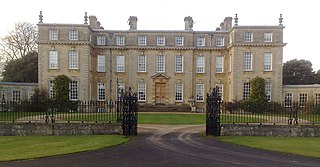
The Ditchley Foundation is a foundation that holds conferences, with a primary focus on British-American relations. Based at Ditchley Park near Chipping Norton, Oxfordshire, it was established as a privately funded charity in 1958 by philanthropist Sir David Wills. Its current Director is James Arroyo,.

Giles Milton FRHistS is a British writer and journalist, who specialises in narrative history. He writes non-fiction, historical fiction, and children's history books, and is best known for Churchill's Ministry of Ungentlemanly Warfare, and Nathaniel's Nutmeg.
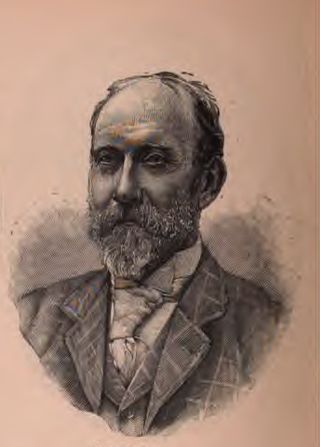
Sir William Wedderburn, 4th Baronet, JP DL was a British civil servant and politician who was a Liberal Party member of Parliament (MP). Wedderburn was one of the founding members of the Indian National Congress. He was also the president of Congress in 1889 and 1910, for the Allahabad session.
Sir Joseph Simpson KBE KPFSM, commonly known as Joe Simpson to his officers, was Commissioner of Police of the Metropolis, the head of the London Metropolitan Police, from 1958 to 1968. He was the first Commissioner who began his police career as an ordinary constable.

Kamalesh Sharma is an Indian diplomat. He was the fifth Secretary General of the Commonwealth of Nations from 2008 to 2016, having previously served as the High Commissioner for India in London. He has served as the Chancellor Emeritus of Queen's University Belfast.
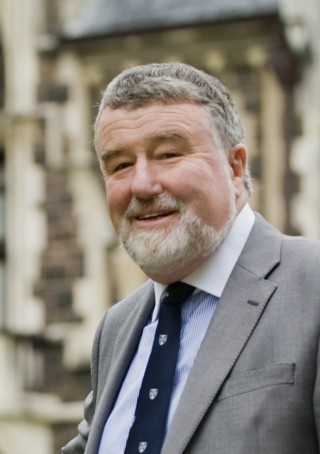
Sir James Bruce Robertson, generally known as Bruce Robertson, is a retired judge of the Court of Appeal of New Zealand, where he was appointed in May 2005.
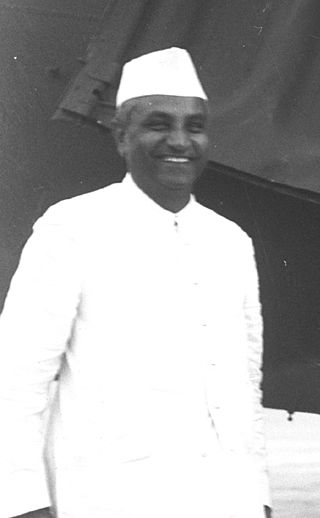
Jivraj Narayan Mehta was an Indian politician and the first Chief Minister of Gujarat. He also served as the first "Dewan" of the erstwhile Baroda state, and Indian high commissioner to the United Kingdom from 1963 to 1966.
Sir William Robert Burkitt was an Irish judge in British India in the 19th and early 20th centuries.
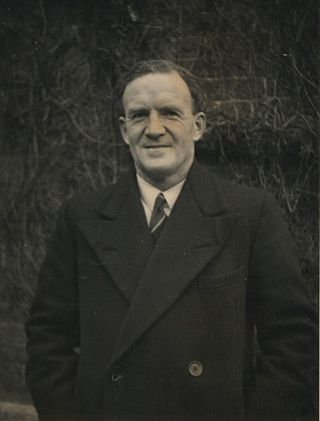
Brigadier Sir Robert Duncan Harris Arundell, was a British diplomat who became Governor and Commander in Chief of the Windward Islands and later Governor of Barbados and acting Governor-General of the West Indies.
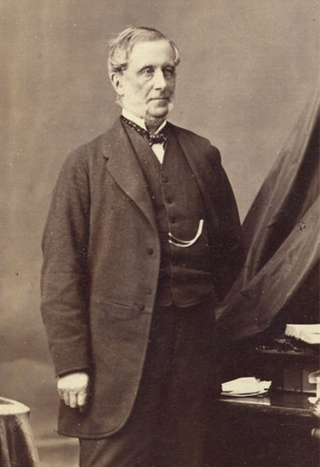
John Young, 1st Baron Lisgar, was a British diplomat and politician. He served as Governor General of Canada (1869–72), Governor of New South Wales (1861–67) and as Chief Secretary for Ireland (1853–55). From 1848 to 1870, he was known as Sir John Young, 2nd Baronet.

Sir Atul Chandra Chatterjee was an Indian diplomat and government official who served as the Indian High Commissioner to the United Kingdom from 1925 to 1931 and was member of the governing body of the League of Nations Assembly in 1925 and 1946. He is known for proposing the India House in London in 1925, which was designed by Sir Herbert Baker and completed in 1930.

The British Deputy High Commission, Chennai is the United Kingdom diplomatic mission with responsibility for the state of Tamil Nadu and the union territory of Puducherry. It was formed in 1947 with Sir Christopher Masterman, CSI, CIE, as its inaugural holder, who served as Deputy High Commissioner until the following year. The Deputy High Commissioner is equivalent to a Consul-General, and reports to the British High Commission. The current Deputy High Commissioner is Oliver Ballhatchet. He succeeds Jeremy Pilmore-Bedford.
Sir Nicholas Maxted Fenn was a British diplomat. He was High Commissioner to India from 1991 to 1996.
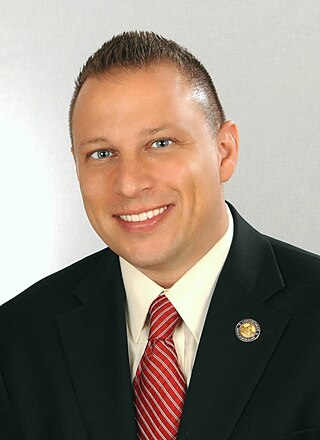
Robert Charles Sampson is an American politician from Connecticut. A member of the Republican Party, he was first elected in 2010 to the Connecticut House of Representatives from the 80th House district, serving four terms (2011–2018). Since 2019, he has been a member of the Connecticut State Senate, elected from the 16th Senate District.
References
- 1 2 3 YOUNG, Sir John Robertson, (Sir Rob), Who's Who 2015, A & C Black, 2015; online edn, Oxford University Press, 2014
- ↑ "Guest Speakers". Archived from the original on 3 February 2013. Retrieved 25 October 2012.